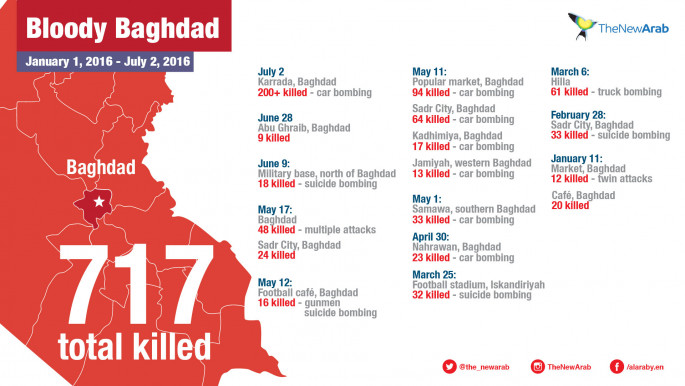Suicide attack on Shia shrine in Iraq kills dozens
The militants' overnight attack on the Sayyid Mohammed shrine in Balad, 50 miles [80 kilometers] north of the Iraqi capital Baghdad, involved suicide bombers and gun and mortar fire.
A suicide bomber first targeted policemen guarding the shrine's entrance, allowing a second bomber to push into the courtyard with nine gunmen, who targeted security forces and civilians who had gathered inside to celebrate Eid al-Fitr, the holiday marking the end of the holy month of Ramadan.
A third bomber was killed before he detonated his explosives, police officials said.
The attack came just hours after Iraqi Health Minister Adila Hamoud announced that the death toll from the Sunday bombing had reached 292.
Hamoud said the bodies of 115 killed in the bombing had now been handed over to families, while the identities of 177 others have yet to be determined.
People have been furious over delays in determining the fate of their loved ones, and with the number of unidentified bodies now bigger, it may take even longer.
Lack of emergency exits
 |
| [Click to enlarge] |
The attack has overshadowed what would normally be a joyful holiday for Iraqi Muslims, instead turning it into a time of mourning and sadness.
Investigators now believe they know what caused the attack to claim so many lives.
Police Major General Talib Khalil Rahi said the suicide bomber detonated a minibus loaded with plastic explosives and ammonium nitrate.
The initial blast killed a limited number of people, but flames spread and trapped people inside shopping centres that lacked emergency exits, Rahi told a news conference in Baghdad.
The raging fires have made it difficult to identify the dead.
Interior Minister Mohammed Ghabban tendered his resignation following the bombing, and authorities also announced the execution of five convicts and the arrest of 40 militants in an apparent bid to limit the fallout from the attack.
Sunday's bombing was claimed by IS, which has its roots in the insurgency that began after the overthrow of Saddam Hussein in the 2003 US-led invasion.
IS overran large areas north and west of Baghdad in 2014, but Iraqi forces have since regained significant territory from the militants.
In response to the battlefield setbacks, the Sunni extremist group has hit back against civilians, and experts have warned there may be more bombings as the militants continue to lose ground.
Agencies contributed to this report.





 Follow the Middle East's top stories in English at The New Arab on Google News
Follow the Middle East's top stories in English at The New Arab on Google News
![Netanyahu furiously denounced the ICC [Getty]](/sites/default/files/styles/image_330x185/public/2024-11/GettyImages-2169352575.jpg?h=199d8c1f&itok=-vRiruf5)
![Both Hamas and the Palestinian Authority welcomed the ICC arrest warrants [Getty]](/sites/default/files/styles/image_330x185/public/2024-11/GettyImages-2178351173.jpg?h=199d8c1f&itok=TV858iVg)
